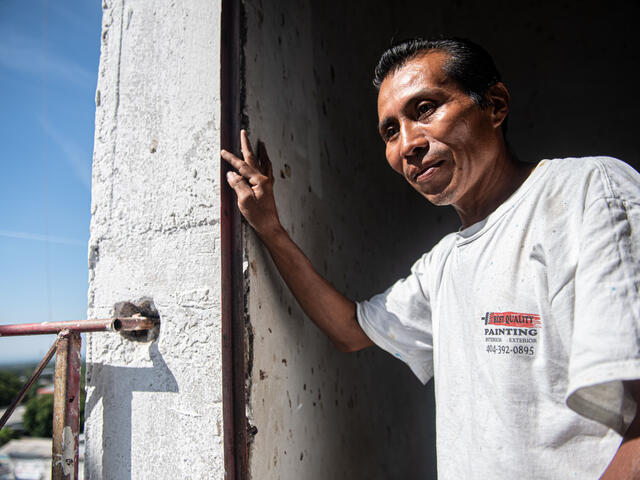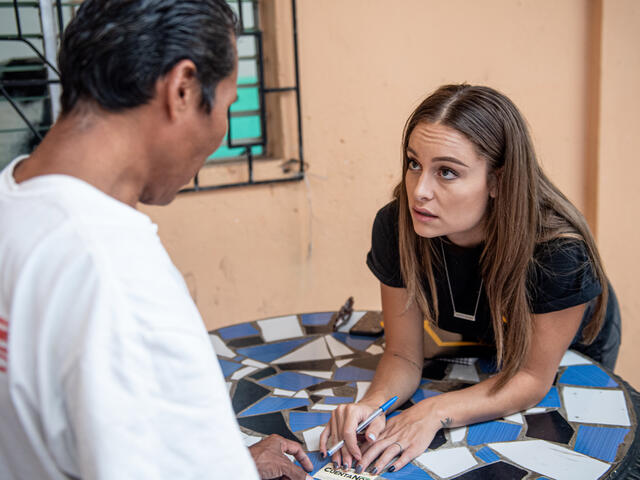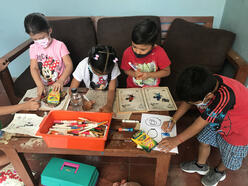Vice President Kamala Harris’s visit to Mexico and Guatemala this week has spotlighted the growing humanitarian crisis in northern Central America. Widespread violence in El Salvador, Honduras and Guatemala continues to force thousands of people to flee to neighboring countries and the United States to seek safety.
“Living conditions in northern Central America are worsening every day, only intensified by the ongoing consequences of COVID-19,” says Meghan Lopez, International Rescue Committee (IRC) regional VP for Latin America.

“People face immense challenges: economic slowdowns make it difficult to meet the most basic needs, like buying food or accessing health care; violence levels are rising—both on the streets and in the homes—especially affecting women, girls, and members of the LGBTQI+ community; and natural disasters leave behind more severe impacts every time.”
People in northern Central America are often displaced multiple times before exhausting all options to stay close to home. They are then forced to flee across international borders.
Safety concerns leave many—including unaccompanied children—unable to settle in Mexico, and they opt to travel all the way to the U.S. border.
Migration should be a last resort for people in need of safety. Crossing borders increases the risk of violence and human trafficking, and the journey itself—often through remote and hazardous terrain—can be life-threatening.

The IRC has released a report with recommendations for how the U.S. can work with partners in Central America to address the humanitarian crisis within the region.
Among these steps, the IRC recommends that the U.S.:
- Invests in humanitarian assistance in the region, including shelter, access to trustworthy information, and components of emergency cash support for people to meet immediate needs,
- Supports opportunities for displaced people to find safe havens within their own countries,
- Helps those returning to their countries to reestablish their lives,
- Builds local capacity to protect women, children, the LGBTQI+ community and other vulnerable groups,
- Upholds the right to seek asylum and helps increase refugee resettlement in the region,
- Supports local efforts to tackle chronic gang violence and assist survivors of violence,
- Assists local leaders in addressing the impacts of climate change in their communities.
Download the full report to learn more.
How the IRC helps

IRC response teams in Mexico, Guatemala, Honduras, and El Salvador are expanding humanitarian assistance to asylum seekers, refugees and other people on the move. We are supporting local partners to improve the availability and quality of critical services, including gender-based violence prevention and support for survivors; economic recovery and development; mental health and psychosocial support; child protection; and cultural orientation. We also help people access information about available services through our online platforms CuéntaNos and InfoDigna, both part of the global Signpost project.
The IRC also works in the U.S. to assist individuals, children and families seeking asylum and protection at the U.S.-Mexico border.